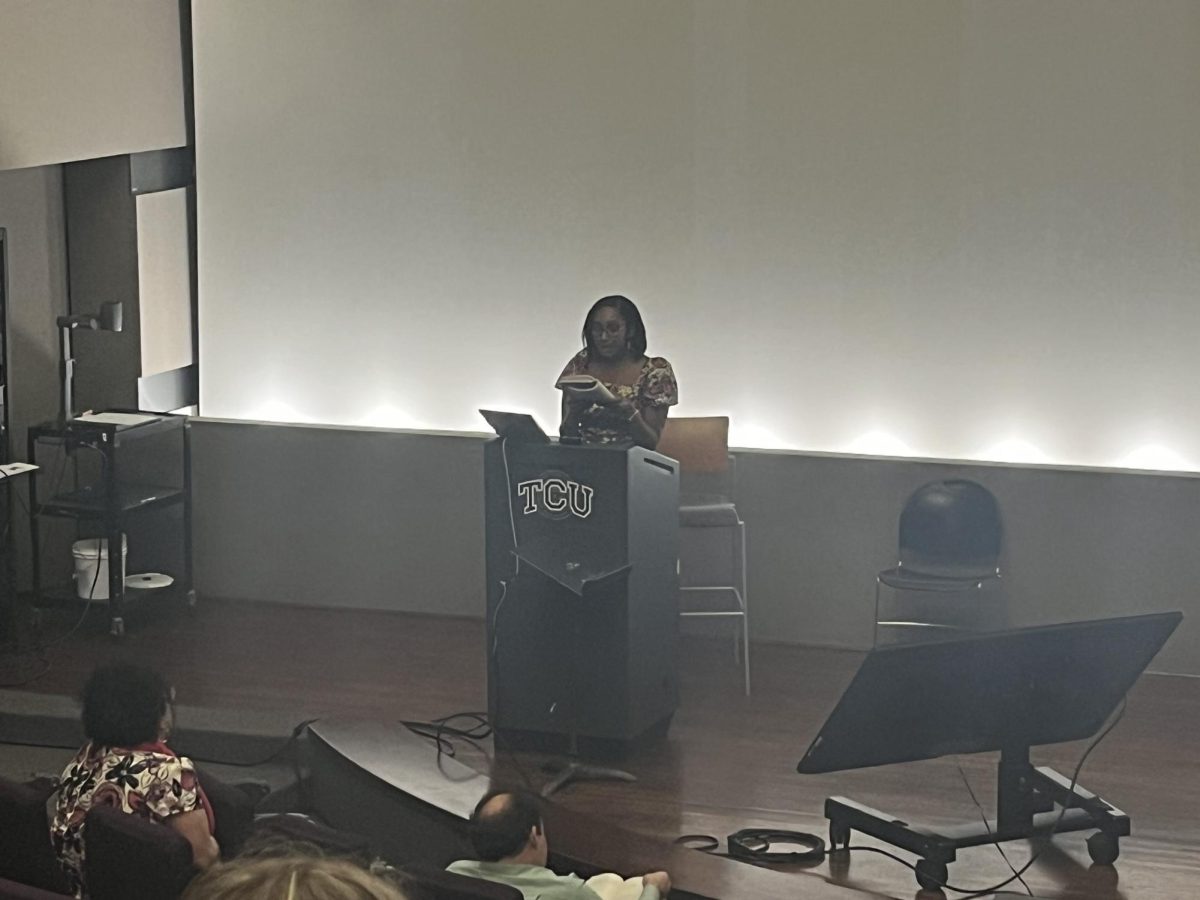English professor Sarah Robbins, a TCU senior and three graduate students worked together with the help of a TCU grant to develop a new literature course.
The course, a young adult literature in American culture class, will be available this spring.
Senior English major Christine Muir described young adult literature as “the books we started picking up ourselves, the ones we actually wanted to read as opposed to the ones our parents got for us.”
The Association of American Publishers ranked children’s and young adult books as the fastest-growing publishing category in 2012, according to National. Some popular books in the genre include The Hunger Games series by Suzanne Collins and The Fault in our Stars by John Green.
“The idea of what is or what is not young adult literature is constantly shifting,” Robbins said. “There was a time when people thought of ‘young adult’ as adolescent in the sense of high school or middle schoolers. Now there is a realization that young adult literature draws in older adult and college age readers.”
The course will double dip for the university’s core curriculum in the cultural awareness and writing emphasis categories and only requires one lower level English course as a prerequisite.
“We’re hoping to have some people who are not English majors because the conversation will be richer, more interesting if we have all kinds of different people interested in the genre,” Robbins said.
Meeting Demand
Because college-age students are reading more and more young adult literature, the genre has slowly crept into many different collegiate literature courses, Robbins said.
“I can tell that [young adult literature] is starting to be taken more seriously by scholars based on the numbers of articles being written about these types of novels in academic journals,” she said.
Some people think that university and high school curriculum should be strictly made of traditional works, but young adult literature has its own message to offer, Muir said. She said she thinks that the genre not only provides enjoyable leisure reading material, but it can also offer real cultural knowledge to the reader.
The growing number of TCU graduate students in the doctoral program who are interested in studying the genre and trends in the literary field were the inspiration for the class, Robbins said.
The team of three graduate students, Sarah McNeely, Callie Kostelich and Molly Leverenz worked alongside Robbins to research examples at other universities in order to map out the class. The University of Illinois at Chicago has a graphic literature class that focuses on some young adult literature works.
Kostelich, an English doctoral student, will be team-teaching the class with Dr. Robbins in the spring.
Although the class creation process has been time-consuming with paperwork, Robbins said everything has been clearly laid out by the university and was easy to understand.
She also said the young adult literature class sailed through many different committee approvals with only a few tweaks to the class title and description.
TCU student pays it forward
As a part of her apprenticeship with the English department, Muir is required to do research to help professors with research on many different topics and subjects.
“With this specific job, I want to spend countless hours on this subject because it’s so close to me,” Muir said. “The young adult genre is my favorite because I connect with it the most. If ever I were to be a novelist, then I would for sure write for the young adult audience.”
Muir said her passion for the research she is doing for this young adult literature class all started in Robbins’ popular literature class last fall. Since she is graduating in December, she won’t actually be able to enroll in the class. If she is able to, Muir said she would love to come back and visit the class for a day if she is able to.
Many students are able to help research materials and information for classes, but Muir said she feels that she is making her own unique mark on TCU.
“It’s almost like leaving a piece of myself at TCU, but in a different way than a brick with my name,” she said. “It’s more like I’m helping future students learn and gain more knowledge, and even have more fun and explore something that is really interesting.”



